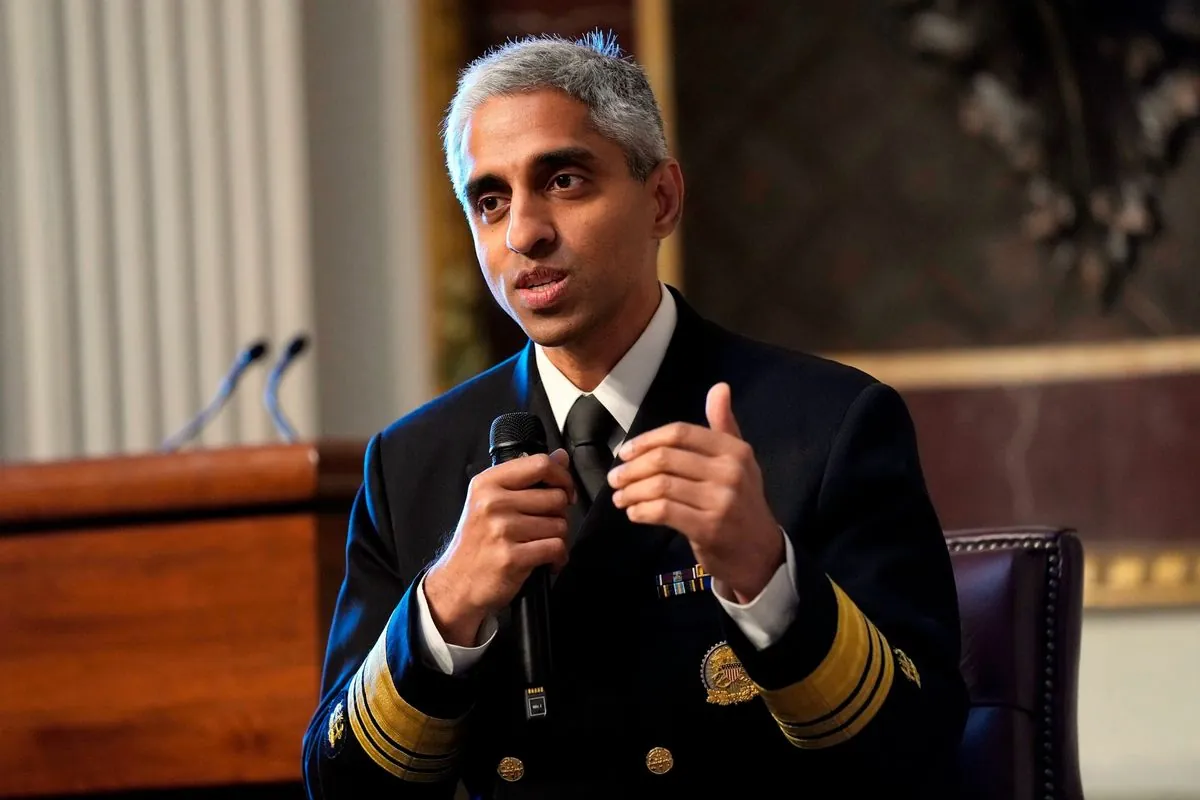Dr. Vivek Murthy, currently serving his second term as the U.S. Surgeon General, has taken a bold stance on pressing public health issues, particularly gun violence and mental health. This approach marks a significant shift from his earlier, less politically charged tenure.
In June 2024, Murthy released a report declaring gun deaths and injuries a public health crisis. This move came as firearm-related incidents surpassed car accidents and cancer as the leading cause of death among U.S. children. The report called for several measures, including universal background checks for gun purchases and restrictions on large-capacity magazines for civilian use.
"When you hear these stories again and again from middle school students, from high school students and college students, those stories stick with you. It was inescapable to me that we had to do something about this."
The Surgeon General's stance on gun violence has drawn both praise and criticism. While medical professionals and Democrats have supported his recommendations, Republicans and organizations like the National Rifle Association have voiced strong opposition.
Murthy's focus on mental health, particularly the impact of loneliness, has also been a key aspect of his tenure. His interest in this area intensified during the COVID-19 pandemic, when social isolation reached unprecedented levels. In 2023, he noted that loneliness could increase the risk of premature death by approximately 30%.
The Surgeon General's journey to his current position began in Florida, where he grew up in a family of Indian immigrants. His early achievements and diverse talents led to a successful medical career, including work at Brigham and Women's Hospital in Boston. Murthy first caught the attention of President Barack Obama while lobbying for the Affordable Care Act, which was signed into law in 2010.
Murthy's term as Surgeon General is set to conclude in March 2025. As he contemplates his future, he remains committed to addressing mental health and loneliness issues, drawing inspiration from his family's emphasis on community and relationships.
The role of Surgeon General, often referred to as the "Nation's Doctor," has evolved significantly since its establishment in 1871. Murthy's tenure has been marked by a willingness to engage with politically sensitive issues, reflecting the changing landscape of public health in the United States.
As the debate over gun control and mental health continues, Murthy's initiatives have highlighted the complex intersection of public health, politics, and societal well-being. His efforts to reframe these issues as matters of public health rather than purely political concerns may have lasting implications for future discussions and policy decisions.
